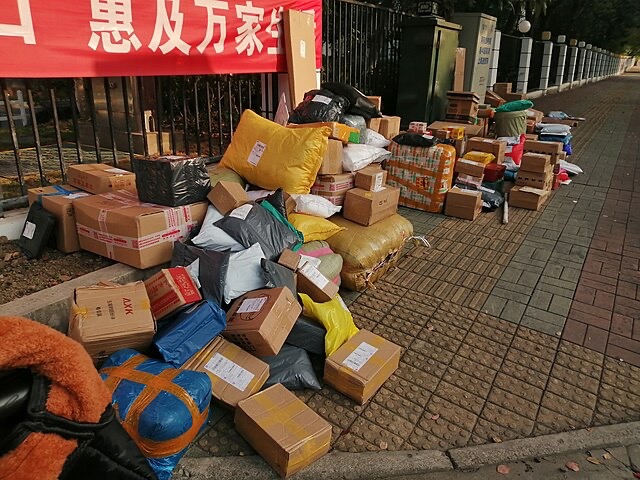Tariff Shocker Reshapes U.S. E-Commerce Landscape
A sweeping trade decision by former President Donald Trump has sent shockwaves across the global e-commerce world. As of May 2, 2025, the United States has officially ended the “de minimis” exemption for packages under $800 originating from China and Hong Kong, exposing them to tariffs up to 145%. This has already prompted multiple retailers to either suspend U.S. operations or drastically revise logistics plans to avoid the astronomical duties.
For years, the de minimis rule allowed small parcels to flow into the U.S. without customs duties, enabling platforms like Shein and Temu to dominate the fast fashion and discount electronics space. With that rule now revoked, the cost structure for e-commerce has fundamentally changed overnight.
What Is the De Minimis Exemption and Why It Mattered?
The de minimis threshold was raised to $800 in 2016, making it one of the highest in the world. It allowed millions of parcels from global sellers—especially Chinese merchants—to reach American doorsteps duty-free.
Retailers used this loophole to ship directly from China while avoiding tariffs and extensive paperwork. The exemption wasn’t just about ease—it was about survival for small and mid-tier online stores. Its removal is being described by economists as “the biggest overnight blow to low-cost e-commerce in U.S. history.”
Timeline of the Tariff Reform
Trump’s April Announcement
In April 2025, Trump confirmed his administration’s intent to “close the de minimis loophole,” citing concerns over counterfeit goods, fentanyl smuggling, and unfair competition. The former president argued that Chinese retailers were abusing the system to undercut American businesses and bypass import inspections.
The May 2 Activation: No More Free Entry Under $800
The change officially kicked in on May 2, 2025. Now, all parcels from China and Hong Kong, regardless of value, are subject to:
- A 145% base tariff, or
- A flat fee of $100 per parcel (whichever is greater),
- Increasing to $200 per parcel in June.
This effectively kills the sub-$10 t-shirt market and severely cripples price-sensitive imports.
Who’s Affected and How
Chinese Retailers Take the First Blow
Platforms like Shein, Temu, AliExpress, and countless independent Shopify sellers from China are the hardest hit. According to Reutershttps://www.reuters.com, some have already stopped taking U.S. orders to avoid financial losses from unpaid duties or shipping disruptions.
Global Retailers Rethink Their U.S. Strategy
Not just Chinese firms—global brands like Space NK and Understance have also announced a pause in U.S. deliveries, fearing inventory bottlenecks and surprise fees at customs.
Retailers’ Response to the Tariff Hike
Who Has Already Pulled Out?
Among the early exits:
- Understance (lingerie brand) – Suspended U.S. shipping
- Space NK – Halted operations for U.S. buyers
- Many Etsy sellers using Chinese suppliers – Closed listings to American customers
Workarounds and Logistics Shifts
Companies are scrambling for solutions. Temu is exploring U.S.-based fulfillment hubs while Shein is considering inventory rerouting via non-tariff countries.
Some are turning to 3PLs (third-party logistics companies) to warehouse stock in the U.S. pre-imported at bulk rates. But for many smaller sellers, these options aren’t viable—shutting down may be the only choice.
Impact on American Consumers
Higher Prices and Slower Deliveries
The golden era of getting a $2 phone case or $5 blouse in 7 days is likely over. Shoppers should now expect:
- Price increases of 20–60% across low-cost categories
- Longer lead times as retailers reroute shipping
- Reduced inventory as sellers cut SKUs for the U.S. market
The End of Cheap Fashion and Gadgets?
E-commerce platforms relying on high volume, low margin sales are in trouble. Analysts predict $5B in lost annual consumer savings, as WSJ reports. Amazon, eBay, and other marketplaces may also be indirectly affected by lower product diversity.
U.S. Government’s Rationale
Protecting Domestic Manufacturing or Political Theater?
Trump’s administration claims the move will reinvigorate local manufacturing and tighten border security. Critics, however, see it as an election-year tactic to win over rust-belt states and small businesses hurt by offshore competition.
Trade Security and Anti-Counterfeit Measures
The exemption had been under fire for allegedly allowing in counterfeit luxury items and unregulated goods including fentanyl precursors. The U.S. Customs and Border Protection (CBP) backs the move as a necessary security reform.
China’s Retaliation
New Tariffs, Export Controls, and Diplomatic Fire
In response, Beijing has implemented countermeasures, including higher tariffs on U.S. agricultural imports, restrictions on rare earth mineral exports, and visa suspensions for certain American business figures.
Escalating the U.S.-China Trade War
What began in Trump’s first term as a tariff skirmish has now become a full-blown trade war 2.0, with significant implications for global commerce.



